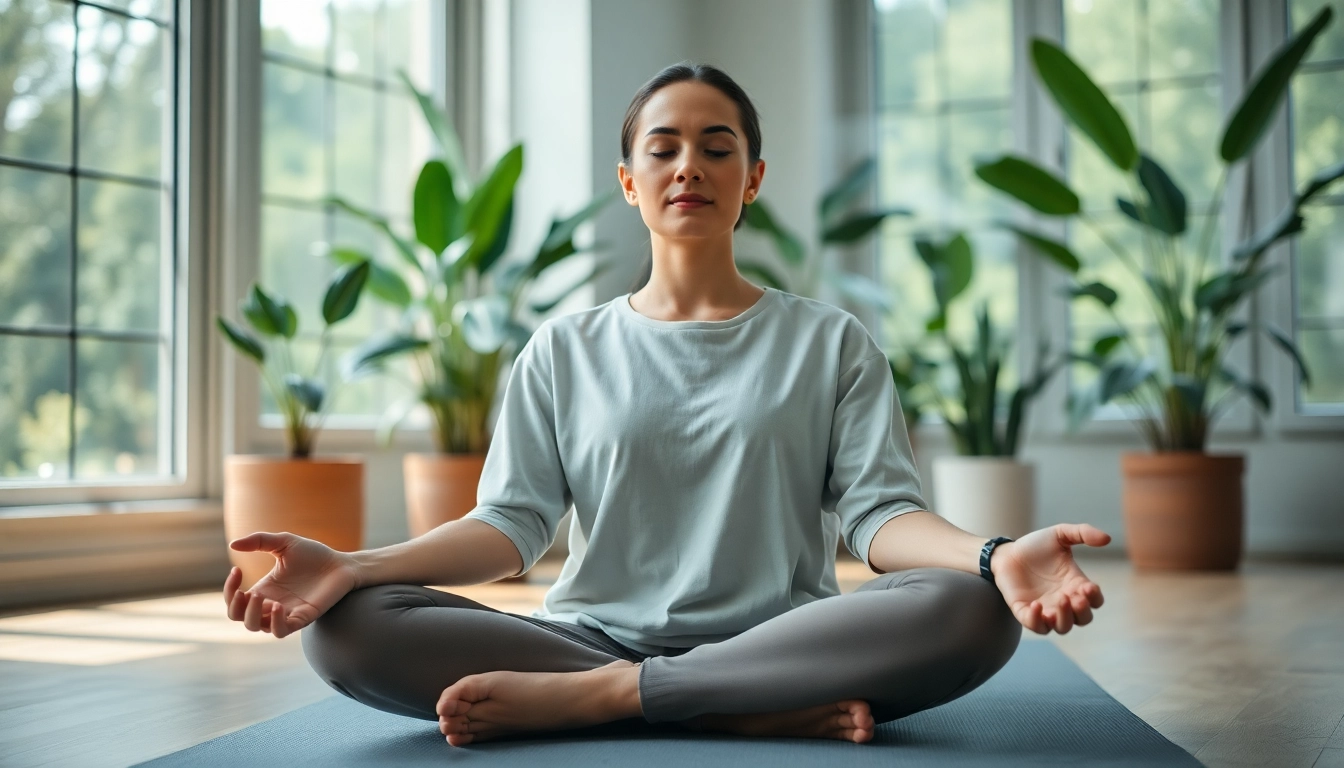Understanding Anxiety: What It Is and Its Effects
Anxiety is a common yet often misunderstood mental health issue that can significantly affect daily functioning. While everyone experiences anxiety at some point, especially in stressful situations, for some individuals, these feelings can become overwhelming and persistent. It is essential to understand what anxiety is and recognize its potential impact on daily life in order to effectively manage and overcome it. For more insights on dealing with anxiety, this article explores various aspects of anxiety, and provides practical tips to help you cope with it.
Defining Anxiety and Its Types
Anxiety can be defined as a feeling of worry, fear, unease, or apprehension about an impending event or a situation. It encompasses a broad spectrum of disorders, including:
- Generalized Anxiety Disorder (GAD): Characterized by chronic anxiety that is more intense than the usual anxiety seen in everyday life, GAD can interfere significantly with daily activities.
- Panic Disorder: Involves recurrent, unexpected panic attacks that lead to a persistent fear of having more attacks, often resulting in changes in behavior.
- Social Anxiety Disorder: This condition causes significant fear and anxiety in social situations, leading to avoidance of such circumstances.
- Specific Phobias: Individuals with specific phobias experience extreme fear of particular objects or situations, leading to avoidance behavior.
Each type has unique characteristics, but they all share the common theme of excessive and irrational fear that disrupts the individual’s ability to function effectively.
Common Symptoms of Anxiety
The symptoms of anxiety can vary widely and may manifest emotionally, cognitively, and physically. Common symptoms include:
- Emotional Symptoms: Feelings of dread, irritability, restlessness, and fatigue.
- Cognitive Symptoms: Difficulty concentrating, racing thoughts, continuous worrying, and feelings of impending doom.
- Physical Symptoms: Sweating, trembling, rapid heartbeat, shortness of breath, and gastrointestinal discomfort.
Recognizing these symptoms is essential for individuals to seek help and develop effective coping strategies.
The Impact of Anxiety on Daily Life
Anxiety can have profound effects on nearly every aspect of a person’s life. It can impair relationships, hinder job performance, and disrupt activities of daily living. Many individuals struggle with making decisions or taking action due to their overwhelming feelings of anxiety. Additionally, untreated anxiety can lead to or exacerbate other mental health issues, such as depression or substance abuse. By understanding the breadth of anxiety’s impact, individuals can take proactive steps in managing it efficiently.
Practical Tips for Dealing with Anxiety
Managing anxiety involves adopting a variety of strategies that can help alleviate symptoms and restore balance in life. Below are some practical tips aimed at helping individuals cope with anxiety effectively.
Relaxation Techniques That Help
One of the first steps in managing anxiety is to practice relaxation techniques. These can serve to deactivate the body’s stress response and cultivate a sense of calm. Some effective relaxation techniques include:
- Deep Breathing: This involves concentrating on your breath and engaging in slow, deep breaths to reduce anxiety symptoms.
- Progressive Muscle Relaxation: Tensing and relaxing different muscle groups sequentially allows individuals to experience the physical sensations of relaxation.
- Visualization: Imagining a peaceful scene can help transport your mind away from anxiety-inducing thoughts and reduce stress levels.
- Mindfulness Meditation: This practice encourages individuals to focus on the present moment, promoting acceptance of thoughts and feelings without judgment.
The Importance of Physical Activity
Regular physical activity has been shown to relieve feelings of anxiety and improve mood. It produces endorphins, which are natural mood lifters. Engaging in various forms of exercise — whether it’s walking, jogging, swimming, or yoga — can significantly contribute to overall mental well-being. It is recommended to aim for at least 30 minutes of moderate exercise most days of the week.
Maintaining a Healthy Routine
Establishing a consistent daily routine can provide stability, which is beneficial for those dealing with anxiety. Here are some components of a healthy routine to consider:
- Regular Sleep Schedule: Quality sleep significantly influences mental health. Aim for 7-9 hours of uninterrupted sleep each night.
- Balanced Diet: Eating nutritious meals can stabilize mood and energy levels, while avoiding excessive caffeine or sugar can reduce anxiety triggers.
- Social Connections: Engaging with friends or family can provide support and reduce feelings of isolation that often accompany anxiety.
Therapeutic Approaches to Manage Anxiety
When self-help strategies are not enough to effectively manage anxiety, seeking therapeutic interventions can be extremely beneficial. Below are some common therapeutic approaches.
Cognitive Behavioral Therapy Overview
Cognitive Behavioral Therapy (CBT) is a widely used form of therapy that focuses on identifying and changing negative thought patterns that contribute to anxiety. During CBT sessions, individuals learn to challenge irrational beliefs and replace them with positive, realistic thoughts. Many studies have shown CBT to be effective in reducing symptoms of anxiety, and it often includes practical homework assignments aimed at applying learned skills to real-life situations.
Benefits of Mindfulness and Meditation
Mindfulness and meditation practices encourage individuals to observe their thoughts and feelings without judgment. These practices help to create a space between thought and action, allowing for more thoughtful responses to anxiety-provoking situations. Research indicates that regular mindfulness practice can significantly reduce anxiety and improve emotional regulation.
When to Seek Professional Help
Individuals may consider seeking professional help if their anxiety becomes overwhelming, consistently interferes with daily functioning, or leads to significant distress. Trained professionals, such as psychologists or psychiatrists, can provide personalized treatment plans that may include therapy, medication, or a combination of both to alleviate symptoms effectively.
Building Resilience Against Anxiety
Resilience is the ability to bounce back from challenges and can be developed through intentional practices. Here are some strategies to build resilience against anxiety:
Practicing Gratitude and Positive Thinking
Acknowledging and appreciating the good in one’s life can counteract negative thought patterns commonly associated with anxiety. Keeping a gratitude journal, where daily entries highlight positive experiences, can foster a hopeful mindset and reduce overall anxiety levels.
Connecting with Supportive Communities
Being part of a supportive community can provide a powerful buffer against anxiety. Groups or support networks that share similar concerns can validate feelings and contribute to a sense of belonging. Connecting with others who understand similar struggles can cultivate a supportive environment and encourage positive change.
Setting Realistic Goals and Expectations
Setting achievable goals can help reduce feelings of overwhelm associated with anxiety. Break larger objectives into manageable tasks and focus on making incremental progress. Achieving small goals can build confidence and motivation, making larger challenges seem more attainable.
Long-Term Strategies for Dealing with Anxiety
Long-term management of anxiety often requires a multifaceted approach that incorporates strategies tailored to the individual’s needs. Here are some long-term strategies to consider:
Creating a Personal Coping Toolbox
Developing a personalized coping toolbox can empower individuals to effectively deal with anxiety when it arises. This toolbox can include relaxation apps, guided meditations, favorite affirmations, stress-relief techniques, or encouraging literature. Having these resources readily accessible can provide comfort in times of need.
Recognizing Triggers and Developing Responses
Identifying specific triggers that lead to anxiety is crucial. This understanding allows individuals to develop proactive coping responses and strategies to manage anxiety effectively. Keeping a journal or log of situations that provoke anxiety can help in recognizing patterns and finding solutions.
Regular Self-Care Practices for Wellbeing
Integrating regular self-care practices into daily routines can greatly enhance mental health. Prioritize activities that bring joy, whether it is engaging in a hobby, spending time in nature, or dedicating time for relaxation. Regularly incorporating self-care activities can maintain well-being and provide a buffer against stress.



